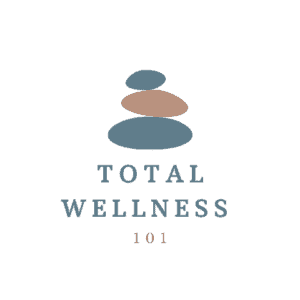Magnesium is an essential mineral for your muscles, but most people are deficient in it. About 50% of Americans consume less than the Estimated Average Requirement (EAR) for magnesium. Magnesium is used to power over 300 processes in the body. It helps to maintain normal muscle and nerve function, keeps your heart rhythm steady, and supports a healthy immune system. Many are not aware of the importance of magnesium or how to get more in their diet so here we will look at all of magnesium’s benefits and where to get it.
What is Magnesium?
Magnesium is the fourth most abundant mineral in the human body, and is the second most abundant intracellular cation (the most abundant intracellular cation is potassium). It is involved in more than 300 enzymatic reactions and is so important to our body that it is present in every cell. Magnesium is also found in our bones, muscles, and soft tissue, as well as in our teeth as enamel. Magnesium is an essential mineral that we need to survive, and is one of the most important minerals for physical and mental health. Magnesium plays an important role in bone formation, muscle contraction, nerve transmission, and maintaining a healthy immune system. Magnesium is also essential for energy metabolism, converting the food we eat into energy and an essential mineral for humans and helps to regulate nerve function throughout the body. Symptoms of Magnesium deficiency could include muscle spasms, shaking, weakness, and nausea. We should all strive to at least reach the daily recommended value of 420 mg to avoid negative side effects for our health.
Why Is Magnesium Important for Your Muscles?
Magnesium is an essential mineral that your body needs to maintain good health and proper muscle function. First of all, magnesium is a muscle relaxant and can help with recovery and sleep at night. It also relaxes the muscles and the nerves. So on top of the muscular benefits it can also reduce stress and anxiety which could hinder your muscle gains. Magnesium especially helps with recovery because it can relieve the tight and sore muscles so that you are ready to hit the gym next time.
Magnesium is also needed for your muscles to maintain their ability to contract, which often depends on the presence of calcium as well.
Magnesium supports protein synthesis too and is involved in processes that support the synthesis of DNA and RNA, which are essential for muscle function.
In short, magnesium is crucial in both muscle contraction and recovery.
How to Get More Magnesium in Your Diet?
Magnesium is a mineral that is found in many different foods, but the average person still doesn’t get enough. The foods that are highest in magnesium are dark leafy greens, nuts and beans. If you’re someone who is looking to increase your magnesium intake, there is no better way than consuming these foods. Magnesium is also found in many other foods and it is added to some foods like bread and cereal. Drinking milk and eating chocolate can also increase your magnesium levels, but it is not as effective as eating the dark leafy greens, nuts and beans. However, it is possible you still won’t get all that you need just by eating these foods. For this reason many supplement Magnesium into their diets.
There are many Magnesium supplements out there, Just make sure you aren’t taking more than the dosage because you can have too much. I shouldn’t take more than 600 mg of Magnesium though needs vary depending on the person. So you should always consult a doctor. Many supplements also contain zinc because the two work together and aid in absorption. These are sometimes referred to as ZMA (Zinc, Magnesium) supplements. One great product is ZMA Jym from Jym Supplement Science. You will receive a discount as well using the code WELLNESS101.
So if you are serious about your muscular health, be sure not to neglect your Magnesium intake either by eating nutrient-rich food or through supplementation. You will recover quicker, sleep better, and perform better in the gym by doing so.
Recent Posts
In the pursuit of professional success, the modern working professional often finds solace in a cup of coffee or energy drink. Caffeine, the world's most widely consumed psychoactive substance, has...
Strategies for Sales Professionals to Reduce Back Pain and Injuries
In the fast-paced world of sales, professionals often find themselves navigating through long hours, client meetings, and constant travel. Amidst the pursuit of closing deals and meeting targets, the...

